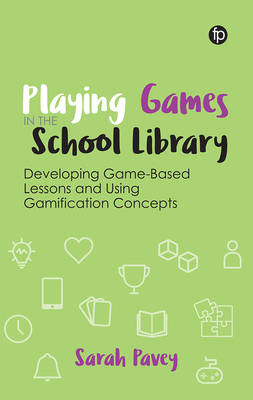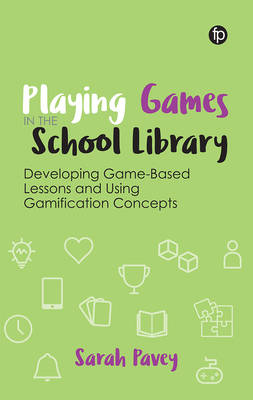
- Retrait gratuit dans votre magasin Club
- 7.000.000 titres dans notre catalogue
- Payer en toute sécurité
- Toujours un magasin près de chez vous
- Retrait gratuit dans votre magasin Club
- 7.000.000 titres dans notre catalogue
- Payer en toute sécurité
- Toujours un magasin près de chez vous
Playing Games in the School Library
Developing Game-Based Lessons and Using Gamification Concepts
Sarah PaveyDescription
Playing Games in the School Library is a comprehensive resource for those looking to explore the use of game-based learning and gamification in the library setting. It illustrates how game play can be developed through applying learning theory to practice, exemplified by case studies taken from a variety of international contexts.
The book begins by applying prominent learning theories, in particular the use of games to nurture natural curiosity, problem solving and creativity. It then looks at the effect of playful learning upon individual students and groups. Motivation, engagement and the development of self-esteem are explored alongside social skills such as team working, oracy, communication, motor skills and emotional intelligence. Separate chapters outline the practical use of different types of games including digital, mixed media, physical and active learning and live games, discussing the advantages and disadvantages of each within a teaching and learning context. Finally, consideration is given to how game-based learning and gamification can be used to promote library resources and services for impact and how collaboration on this approach with subject teachers, senior leadership teams and the wider community, including parents can be beneficial.
Written in a comprehensive but accessible manner, Playing Games in the School Library will give readers a means of engaging with distance learning, as well as providing a more challenging environment within their physical space. It will equip them with both a practical and theoretical rationale for including the game-based approach in their work while supporting their school's aims and objectives.
Spécifications
Parties prenantes
- Auteur(s) :
- Editeur:
Contenu
- Nombre de pages :
- 200
- Langue:
- Anglais
Caractéristiques
- EAN:
- 9781783305339
- Date de parution :
- 10-09-21
- Format:
- Livre broché
- Format numérique:
- Trade paperback (VS)
- Dimensions :
- 152 mm x 231 mm
- Poids :
- 294 g







